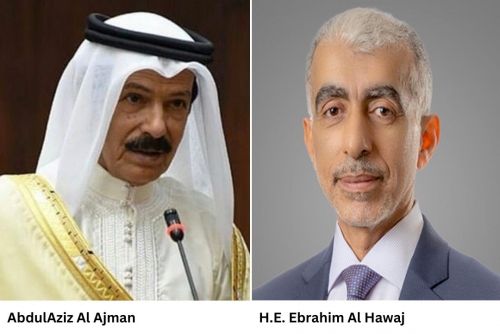Two-year ban targets frequent road excavations
TDT | Manama
Email: mail@newsofbahrain.com
Frequent digging and roadworks that leave Bahrain’s streets a mess may ease off, with Works Minister, His Excellency Ebrahim Al Hawaj, bringing in a two-year ban on digging up freshly laid bitumen roads unless it’s absolutely needed.
Al Hawaj confirmed the move in a written reply to a question raised by Shura Council member Dr Abdulaziz Al Ajman, who wanted answers on how the ministry keeps an eye on road projects, coordinates with other departments, and makes sure contractors don’t cut corners or run late.
“The Works Ministry is serious about keeping roads in good nick, and stopping the same streets from being dug up repeatedly,” Al Hawaj said.
Rules
Every road project has its own inspection team, with engineers and technical experts checking daily to make sure contractors are playing by the rules.
Before the first shovel hits the dirt, the ministry tests and approves all building materials through local inspections and trusted overseas labs.
“Once we’ve laid down new road surfaces, no one can rip them up again for at least two years unless there’s a very good reason,” Al Hawaj said.
He also explained that planning involves working closely with other departments to put services underground or set up tunnels for pipes and wires, so no one needs to tear open the bitumen again down the track. On managing traffic jams and impacts to local shops during roadworks, Al Hawaj said the ministry makes sure all service providers get a look at the plans and give the thumbsup before work begins.
Bigger projects involve even more coordination. Any overlaps are sorted out by the departments early on. Drainage and sewerage pipes also go in before laying down road surfaces, saving residents the hassle of future road closures.
Traffic changes and street closures need approval from the traffic authorities, and businesses and locals are kept informed through official notices and social media announcements.
Standards
When it comes to contractors, Al Hawaj said the ministry sets strict standards for who can take on road projects, looking carefully at their past work, skills, and how reliable they are with timing and quality.
“We don’t pay contractors unless they get the job right,” he added. “If they mess up or break the rules, they’ll be warned first, and fined if it happens again.”
Al Hawaj said contractors who repeatedly do poor work or run behind schedule might find themselves out of luck in future contracts, as the ministry regularly rates their performance.
Wrapping up, Al Hawaj told the Shura Council the ministry remains keen to work together on infrastructure improvements that benefit both locals and expats around the kingdom.
Related Posts

